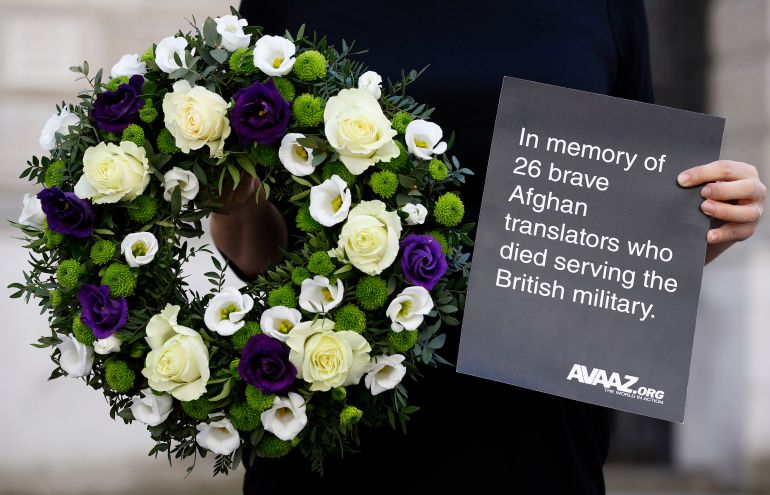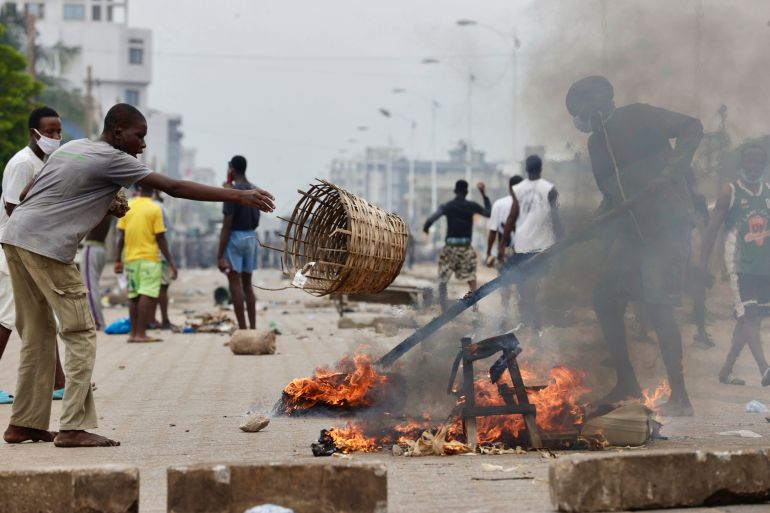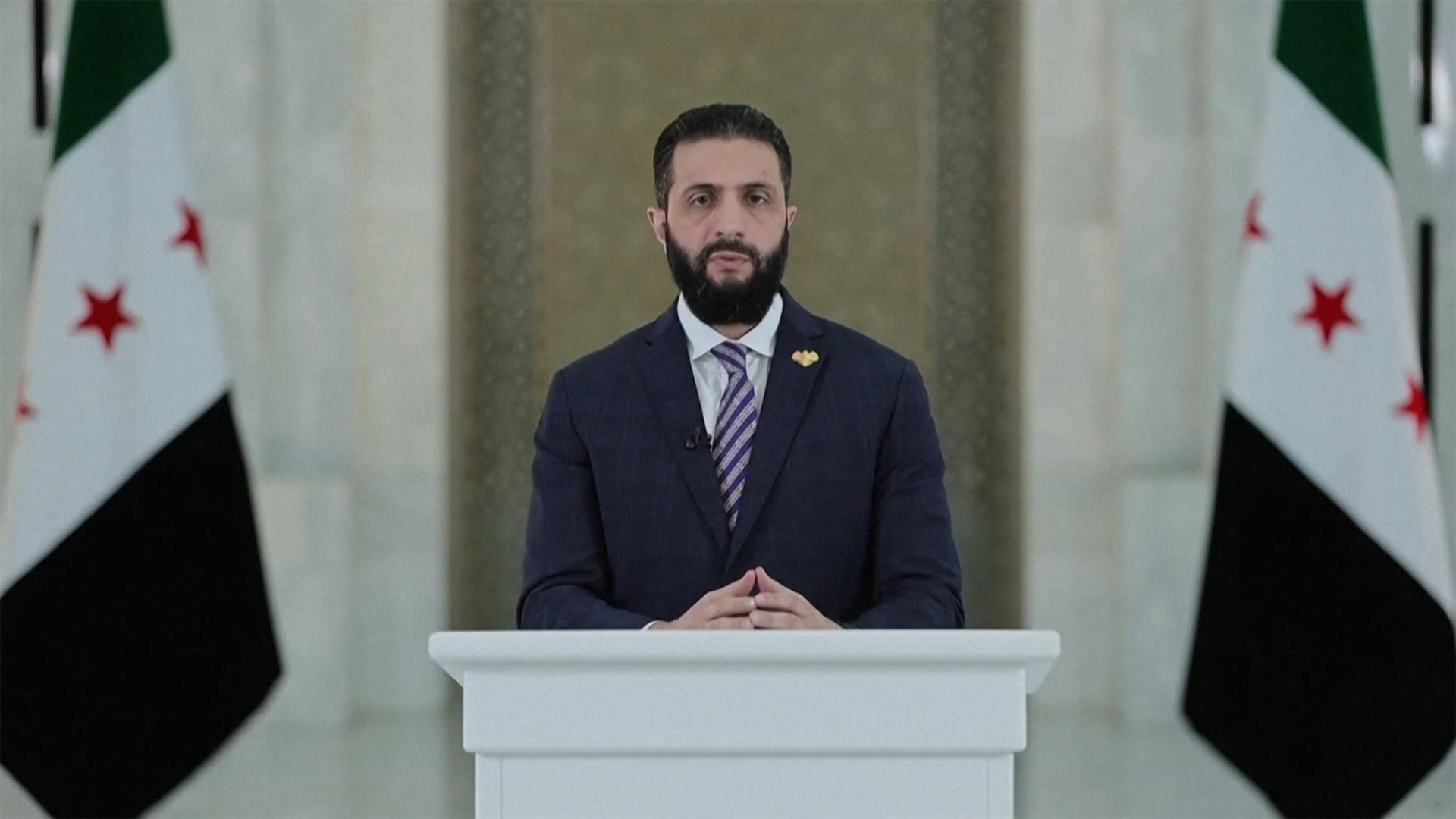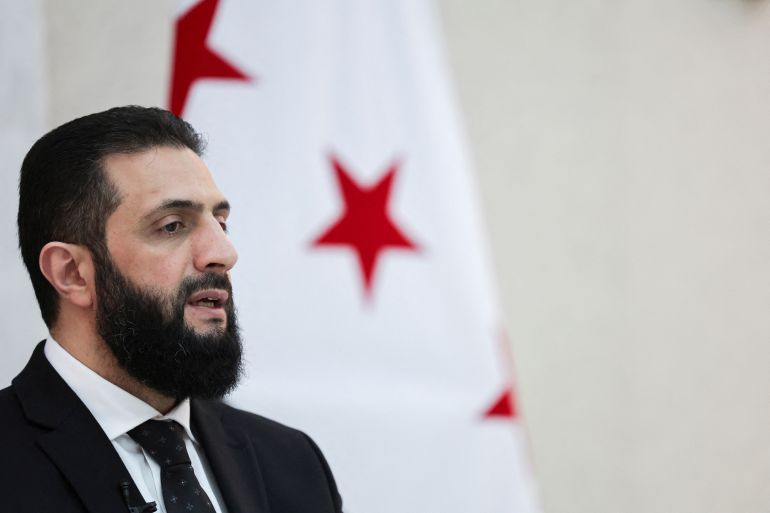The British government has secretly resettled thousands of Afghans in the United Kingdom for fear they might be targeted by the Taliban after their personal details were leaked, Defence Secretary John Healey revealed on Tuesday.
Details about the accidental data breach by a British soldier and the secret relocation programme for Afghans were made public after a rare court order known as a “superinjuction”, which barred the media from even disclosing its existence, was lifted on Tuesday.
Here is what we know about what happened and how the government responded:
Whose data was leaked and how did it happen?
A spreadsheet containing the personal information of about 18,700 Afghans and their relatives – a total of about 33,000 people – was accidentally forwarded to the wrong recipients by email in February 2022, Healey told lawmakers in the House of Commons.
These were people who had applied for relocation to the UK between August 2021 and January 7, 2022. That was the six-month period following the Taliban takeover of Afghanistan after the US and allied forces withdrew from the country. Most had worked as translators, assistants or in other capacities for the British military in Afghanistan.
They had applied for the UK’s Afghan Relocations and Assistance Policy (ARAP) scheme, which, like its predecessor, the Ex-Gratia Scheme (EGS), had been set up for Afghans who had worked for the British forces.
The EGS was originally established in 2013 following a long campaign by activists and media in support of people who had assisted the British military in Afghanistan and who were considered likely to face reprisals from the Taliban.
The British soldier at the centre of the leak, who had been tasked with verifying applications for relocation, is understood to have mistakenly believed the database contained the names of 150 applicants, when it actually contained personal information linked to some 18,714 people.
The soldier was under the command of General Sir Gwyn Jenkins, who was director of special forces at the time and now heads the British Navy. His name had also been suppressed by the court order until this week.
The UK’s Ministry of Defence (MoD) became aware of the leak when someone else posted parts of the data on Facebook on August 14, 2023. The Facebook post was first spotted by an activist who was assisting Afghans who had worked with UK forces.
The activist contacted the MoD, saying: “The Taliban may now have a 33,000-long kill list – essentially provided to them by the British government. If any of these families are murdered, the government will be liable,” The Guardian newspaper reported.
How did the government respond to the leak?
The MoD told Facebook to take down the post with the leaked information, citing security threats from the Taliban. It also warned some 1,800 ARAP applicants who had fled to Pakistan that they or their families could be in danger.
The UK government, led by former Conservative Prime Minister Rishi Sunak, then sought a court order barring any media disclosure of the data breach.
On September 1, 2023, a High Court judge in London issued a “superinjunction”, which not only prohibits the disclosure of any details but also forbids revealing that the order exists at all. That superinjunction was lifted on Tuesday following a campaign led by The Times newspaper in London.
In April 2024, the government created the Afghanistan Response Route (ARR) to support Afghans who were not eligible for ARAP but were considered at high risk of reprisals from the Taliban as a result of the data leak.
This scheme, which was kept secret, has now been closed, Healey told the House of Commons. However, he added that hundreds of invitations were issued to Afghans and their families under the scheme and these invitations “will be honoured”.
The government also launched the secret Operation Rubific to evacuate those Afghans deemed to be at risk directly to the UK.
How many Afghans have been relocated to the UK under the secret scheme?
As a direct result of the leak, the government says 900 people and about 3,000 relatives have already been flown to the UK under the secret relocation scheme and put up in hotels or military bases. In total, about 24,000 Afghans affected by the breach have either been brought to the UK already or will be in the near future, according to UK media reports.
Through broader resettlement schemes, 35,245 Afghans have so far been relocated to the UK, official data suggests.
Why is this information being disclosed now?
The court order barring the details about the leak from being disclosed was lifted at noon (11:00 GMT) on Tuesday.
Following several private hearings, a High Court judge ruled in May that the injunction should be lifted, citing, among other reasons, the inability of the public or parliament to scrutinise the government’s decisions.
British news outlet The Times reported it had spearheaded the two-year legal battle which resulted in the injunction being lifted.
That decision was, however, overturned by the Court of Appeal in July 2024, due to concerns about the potential risks to individuals whose information had been leaked.
Then came the “Rimmer review”.
Healey, a member of current Prime Minister Keir Starmer’s ruling Labour party, said he was briefed about the leak when it happened as he was serving as shadow defence secretary at the time. However, he added that other cabinet members were only informed about the leak when Starmer’s party was elected to power in the general election of July 2024.
“As Parliamentarians – and as Government Ministers – it has been deeply uncomfortable to be constrained in reporting to this House. And I am grateful today to be able to disclose the details to Parliament,” Healey said on Tuesday.
Healey said that at the beginning of this year, he commissioned former senior civil servant and former Deputy Chief of Defence Intelligence Paul Rimmer to conduct an independent review.
Quoting the “Rimmer review” in Parliament on Tuesday, Healey said that four years since the Taliban’s takeover in Afghanistan, “there is little evidence of intent by the Taleban [sic] to conduct a campaign of retribution against former officials.”
He added that the information the Taliban inherited from the former Afghan government would have already allowed them to target individuals if they had wished. Therefore, Rimmer concluded it was “highly unlikely” that someone’s information being on the leaked spreadsheet would be a key piece of information enabling or prompting the Taliban to take action.
“However, Rimmer is clear – he stresses the uncertainty in any judgements … and he does not rule out any risk,” Healey said.
How safe are the people named in the leak now?
The Times reported that after the superinjunction had been lifted, a new temporary court order was issued, barring the media from publishing specific sensitive details about what exactly was in the database.
The Times said the government cited reasons of confidentiality and national security, arguing that the leaked list still poses a threat to the safety of the Afghans.
In a webpage published on Tuesday, the MoD states: “At present, there is no evidence to suggest that the spreadsheet has been seen or used by others who might seek to exploit the information; however, the UK Government cannot rule out that possibility.”
It now advises those who applied for the ARAP or EGS programmes before January 7, 2022, to exercise caution, avoid phone calls or messages from unknown numbers, limit their social media profiles and use a Virtual Private Network (VPN) where possible.
UK-based media outlets have reported that a law firm is suing the MoD on behalf of at least 1,000 Afghans affected by the data leak.
How much has the leak cost the UK government?
Healey said on Tuesday that it had already cost 400 million pounds ($540m) to bring an initial 900 Afghans and their 3,600 family members to the UK under the ARR.
However, this does not account for the expenditures by other government schemes to relocate Afghans to the UK. Healey estimated that the total cost of relocating Afghans to the UK was between 5.5 billion and 6 billion pounds ($7.4bn to $8bn).








